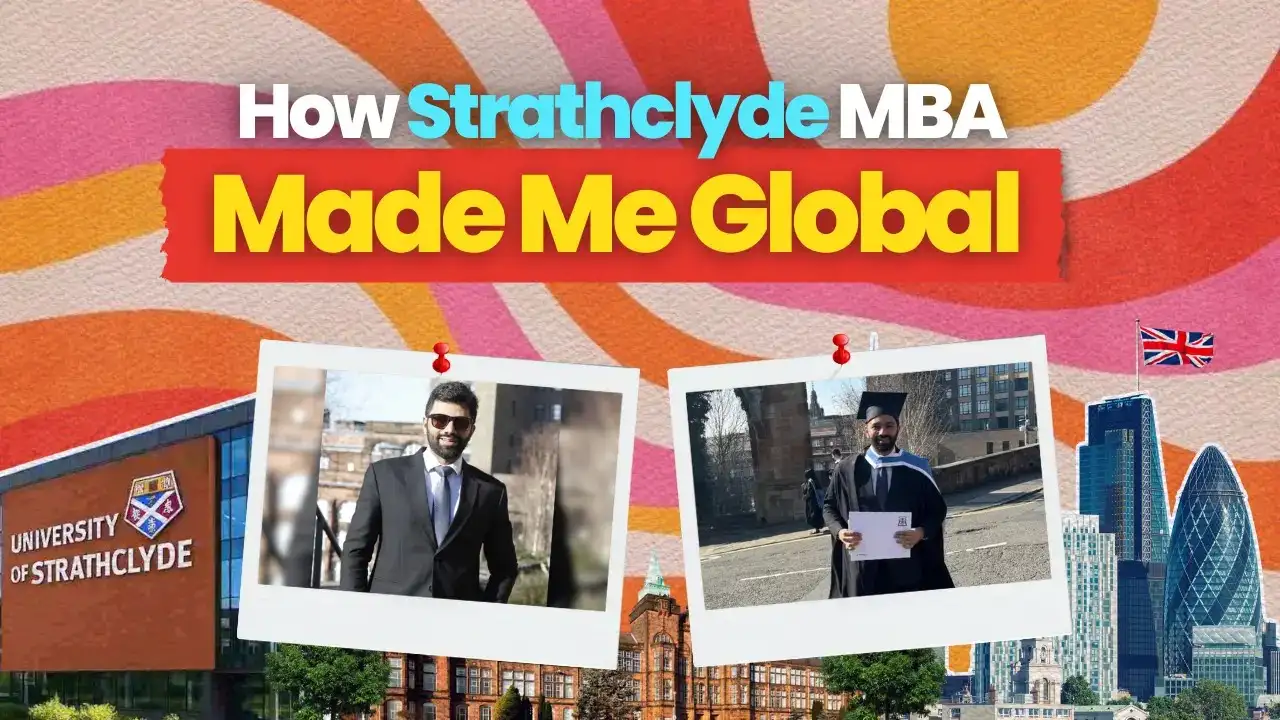Student Reviews
Breaking into Ireland’s Quantitative Finance Industry at 21

I am Vidur Aggarwal, a consultant at EY. I completed my master’s in Financial Data Science from UCD Michael Smurfit Graduate Business School in Ireland. I spoke with Leap about my journey for their student expert series—Indians who had studied abroad recently and are still in that country — because I want to be a guide for others navigating their own journey into finance and studying abroad.
Q. Tell us about your background
I completed my undergraduate degree in Accounting at the age of 19 while working full-time with a FTSE 100 company in their Technical Accounting and Consolidation department. During this time, I was introduced to IFRS 9 Expected Credit Loss, which sparked my interest in credit risk modelling—a field that blends statistics, mathematics, finance, and programming.
I earned my degree from Oxford Brookes University by clearing the first nine ACCA exams and submitting a research paper. My exposure to IFRS 9 inspired me to pursue a master’s in quantitative finance. UCD’s Financial Data Science programme stood out as one of the few courses combining finance and data science, directly aligning with my goal of building a career in credit risk modelling. I applied, was accepted at 19, and began my master’s at the age of 20.
Q. Why did you want to study abroad?
Given the academic path I followed, the niche course I wanted to pursue, and the experience I gained working under UK regulations, studying abroad made sense. It aligned well with my career goals in credit risk modelling and offered the right environment to build on my existing foundation.
Q. How did you decide where to pursue your master’s from?
My undergraduate degree was from the UK, and since ACCA is well recognised in both the UK and Ireland, I considered both countries for my master's. I was specifically looking for a program that would support my shift into quantitative finance. UCD was the only university I applied to in Ireland, while the rest of my applications were to universities in the UK. UCD’s Financial Data Science course stood out as the perfect fit for me.
Q. What was it like to study there?
The rigor of the course was quite high, and I struggled a bit in the beginning due to the transition. Some of the quantitative modules required extra effort on my part compared to students with backgrounds in mathematics, statistics, or engineering.
One of the key challenges was the short duration of the program. It’s officially a one-year master's, but with a two-month internship and a one-month gap, the actual coursework is compressed into about 7–8 months. This meant I had to stay on top of everything, moving from one topic to the next at a fast pace.
Beyond academics, I had the chance to work as a teaching assistant for an undergraduate finance course. Also got the opportunity to be part of the UCD table tennis team which came third in Varsity championship. Overall, it was a once-in-a-lifetime experience.
Q. Can you tell us about your expenses?
I was fortunate to have my entire expenses sponsored by my family. My tuition fee is approximately €26,000 (₹23,30,000). My rent was on the expensive side because I booked it at the end of July, just two weeks before I had to travel. Given the limited options, I had to take what was available, which cost me around €1,300 (₹1,16,500) per month. In addition, I spent approximately €600 (₹53,700) per month on groceries, living expenses, dining out, and other essentials.
Q. How did you land your job after graduation?
The best chance for landing a job for a fresher or someone with less than 1 year of experience is through graduate programs and summer internships. I applied to a lot of graduate programs and summer internships and was lucky enough to land a summer internship with Grant Thornton in their Quantitative Risk department. After that, my approach involved reaching out to people who had previously worked in the same department at Grant Thornton and checking if they had any openings.
I highly recommend having a well-structured, ATS friendly one-page CV. Emphasis should be placed on relevant coursework and projects ensuring that your application aligns with the specific department you are applying to. Recruiters are more focused on the coursework, projects and internships you have previously done while shortlisting CVs for graduate programmes and summer internships.
Q. What advice do you want to give out to those who are looking to pursue a career in Finance in Ireland?
In Ireland, particularly in the field of quantitative finance, there are many opportunities in credit risk and regulatory roles. However, it's important to understand the structure of the local market. Compared to cities like London, where market risk and trading roles are more prevalent, Dublin tends to lean more towards credit-focused and regulatory positions. So, aligning your expectations and career interests with what the Irish market has to offer is key.
My advice to anyone starting out would be to first gain clarity on the specific area of finance you’re genuinely interested in. I often see graduates who approach the job search with the sole aim of “just finding a job,” and they tend to face more challenges. On the other hand, those who focus on a particular field—one that aligns with their strengths, interests, and technical skill set—tend to find roles that are a better fit and more fulfilling in the long run.
Take the time to understand the landscape, reflect on what excites you about finance, and ask yourself: What value can I bring to this particular domain?



